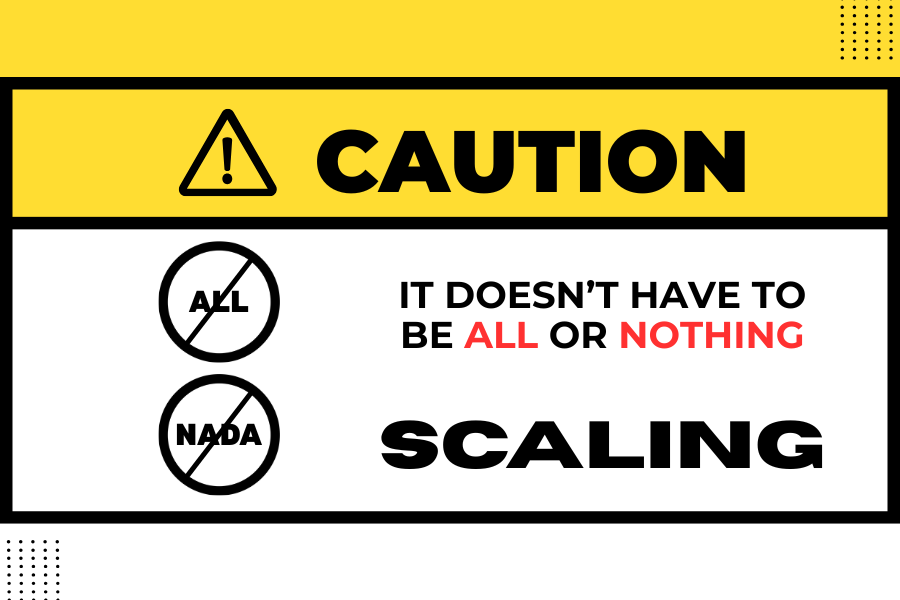
Don't Wait for Retirement to Start Living: The Power of Income-Funded Happiness
We've all heard the conventional wisdom: work hard, save diligently, and defer gratification until retirement. This has long been the golden rule of financial planning. But what if this approach is missing something crucial? What if the key to both financial security and a fulfilling life isn't about waiting for some distant future, but about strategically enjoying the present while you still have the safety net of income?
The Income Advantage: Your Secret Weapon
Here's a financial truth that doesn't get enough attention: income changes everything. When you're still working, you have something many retirees don't: a regular paycheck that reduces your financial risk dramatically. This isn't just about having more money; it's about having predictable money that allows you to take calculated risks with your happiness.
Think about it: that vacation you've been putting off "until retirement"? It's actually less risky to take it now while you're still earning. That dinner out with friends you've been skipping to save money? The financial impact is negligible when you have steady income to cushion it.
The Mathematics of Working Longer
Working longer has a surprisingly powerful effect on retirement security, and understanding why can free you to live more fully during your working years. When you extend your career even by just a few years several financial forces work in your favor simultaneously.
Additional months or years of work allow you to contribute more to your retirement accounts while giving those existing savings more time to grow through compound returns. But the largest factor is often overlooked: the dramatic increase in Social Security benefits from claiming later. For each year you delay claiming Social Security past your full retirement age (up to age 70), your benefits increase by approximately 8%. This isn't just an 8% bump: it's an 8% increase that compounds for the rest of your life.

This mathematical reality creates an interesting opportunity. Because working longer provides such substantial retirement security, you can afford to live more fully during your working years without jeopardizing your future. The security that comes from extended working years gives you permission to spend more strategically on experiences and happiness today.
The Best of Both Worlds Strategy: Having Your Cake and Eating It Too
What if you didn't have to choose between financial security and present happiness? What if you could have both? The old saying "you can't have your cake and eat it too" doesn't apply to smart financial living. With the right approach, you absolutely can enjoy life's sweetness now while still preserving your financial future.

Use your vacation days. Those days aren't just a nice to have: they're part of your compensation package. Taking that long weekend with your spouse or that week-long trip with your adult children isn't frivolous spending; it's strategic living. You're creating memories and experiences while you have the energy to enjoy them and the income to afford them without derailing your future.
Invest in experiences now. Go to your happy places: whether that's a cozy restaurant, a national park, or your grandchild's baseball game. These aren't just expenses; they're investments in a life well lived. And crucially, you can afford them more easily now than you will be able to in retirement.
Live with intention, not deprivation. This doesn't mean spending recklessly. It means recognizing that your current income gives you permission to enjoy life strategically while still building toward your future.
The Unexpected Benefit: Work Becomes More Bearable
Here's something interesting that happens when you start living more fully during your working years: work itself becomes more tolerable. When you have concrete experiences to look forward to: that upcoming trip with friends, the concert tickets you bought, the family gathering you're planning: work transforms from pure drudgery into the means to fund a life you actually enjoy.
Take my husband, for example. This February, he's attending a ski camp to improve his skills at a hobby he had to put on hold during the 15 years we lived in South Carolina. It's a break from his high stress job and gives him something tangible to anticipate during those particularly challenging workdays. That week away isn't just about skiing: it's about reconnecting with a passion, reducing stress, and creating a mental escape valve that makes the daily grind more manageable.

Suddenly, working a few extra years doesn't feel like a prison sentence. It feels like a strategic choice that allows you to live well now and secure your future. This shift in perspective can make the difference between retiring at 62 out of desperation and choosing to work until 67 because you've found a sustainable rhythm that works for both your present happiness and future security.
The Reality Check We All Need
We spend so much time planning for a long retirement, but here's an uncomfortable truth: we don't know what the future holds. Health can change. Circumstances can shift. The retirement we're meticulously planning for might not unfold the way we imagine.
Consider this: most people end up retiring earlier than they originally planned. Sometimes it's due to health issues that force an early exit from the workforce. Other times it's because they need to care for aging parents or a sick spouse. And increasingly, people retire early simply because they're burned out and can't face another year of workplace stress.

While we can't control health crises or family emergencies, we can absolutely address the burnout factor. When work becomes unbearable, it's often because we've turned it into pure sacrifice with no immediate rewards. But when you start viewing your job as the means to fund meaningful experiences and immediate goals, everything changes. That challenging project becomes more manageable when you know it's helping pay for your anniversary trip next month. Those extra hours feel less oppressive when they're directly connected to that weekend getaway you've been planning.
This isn't about being pessimistic: it's about being realistic. Don't postpone all your joy for a future that isn't guaranteed. The gift of life you have right now, with your current health and energy and relationships, is precious. And your income makes it possible to honor that gift without sacrificing your future security.
Finding Your Balance
This isn't a call to abandon all financial responsibility. It's a call to recognize that happiness deserves a place on your financial planning scale. The goal isn't to spend everything you earn, but to spend thoughtfully on the things that matter most while you have the income to support those choices safely.
Ask yourself: What experiences are you putting off? What small joys are you denying yourself in service of a future that may or may not unfold as planned? What memories could you be making with family and friends right now, while you have the financial flexibility to do so?
The Power of Strategic Living
Working longer can indeed improve your retirement security: that's financially sound advice. But it doesn't have to mean sacrificing decades of potential happiness. By using your income strategically to fund experiences and joy in the present, you can extend your working years not out of desperation, but out of choice. You can work longer because you've made working life more meaningful and retirement less urgent.

The most successful retirement strategy might not be about how much money you save, but about how well you live along the way. Because ultimately, a life well lived isn't something you postpone: it's something you choose, day by day, while you still have the income and health and opportunity to make it happen.
And yes, you really can have your cake and eat it too.
This blog post is intended for educational and informational purposes only. The views expressed are solely those of the author and do not represent professional financial advice. While every effort has been made to ensure the accuracy of the information presented, it should not be relied upon as a substitute for individualized advice from a qualified financial advisor. Financial decisions are complex and personal, and readers are strongly encouraged to conduct their own due diligence and seek professional guidance before making any investment or financial planning choices.
- Chris Maggio, Founder, Retirement Planning Partner, Kirkland, WA—providing fee-only retirement planning to clients in Seattle and across the US.



